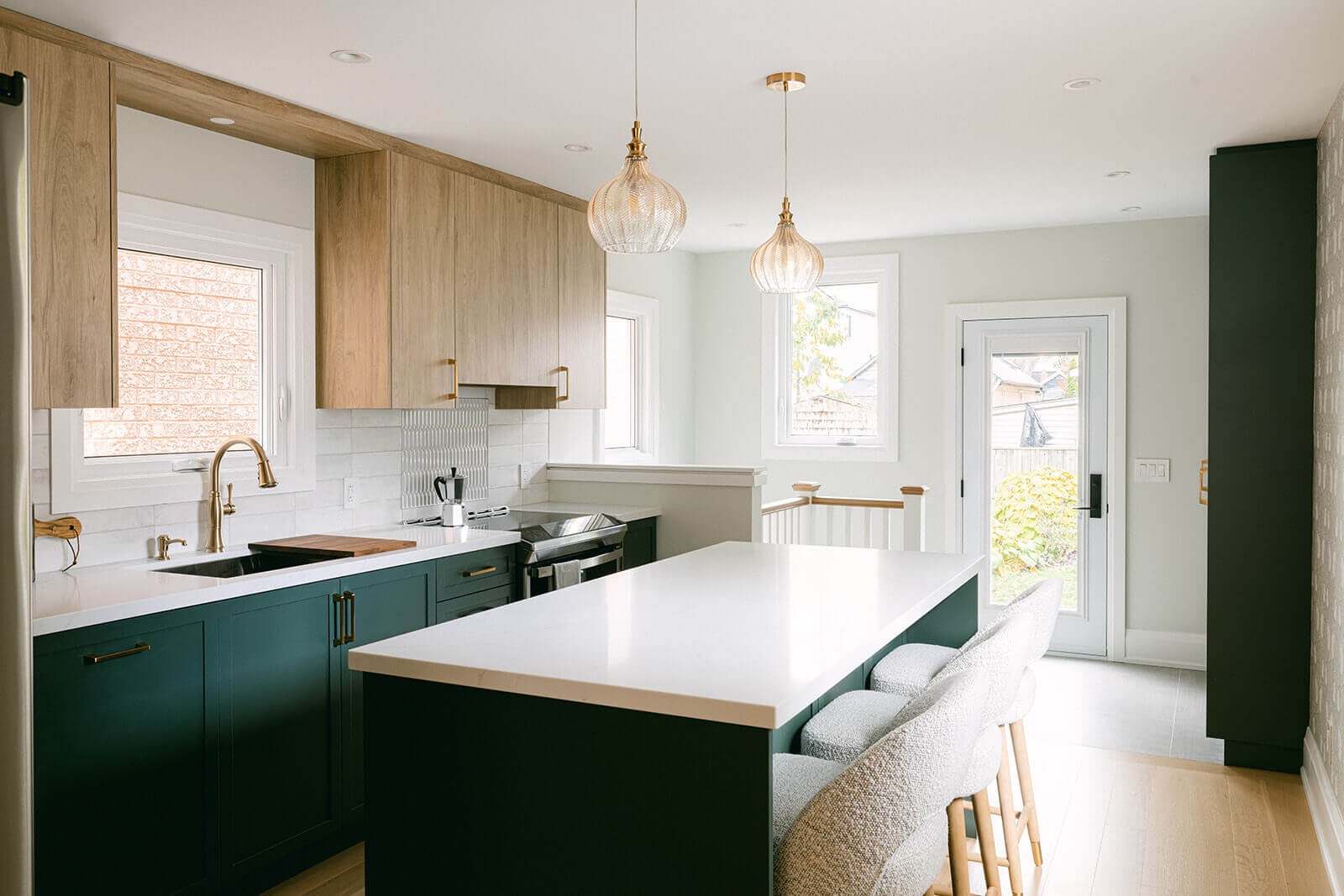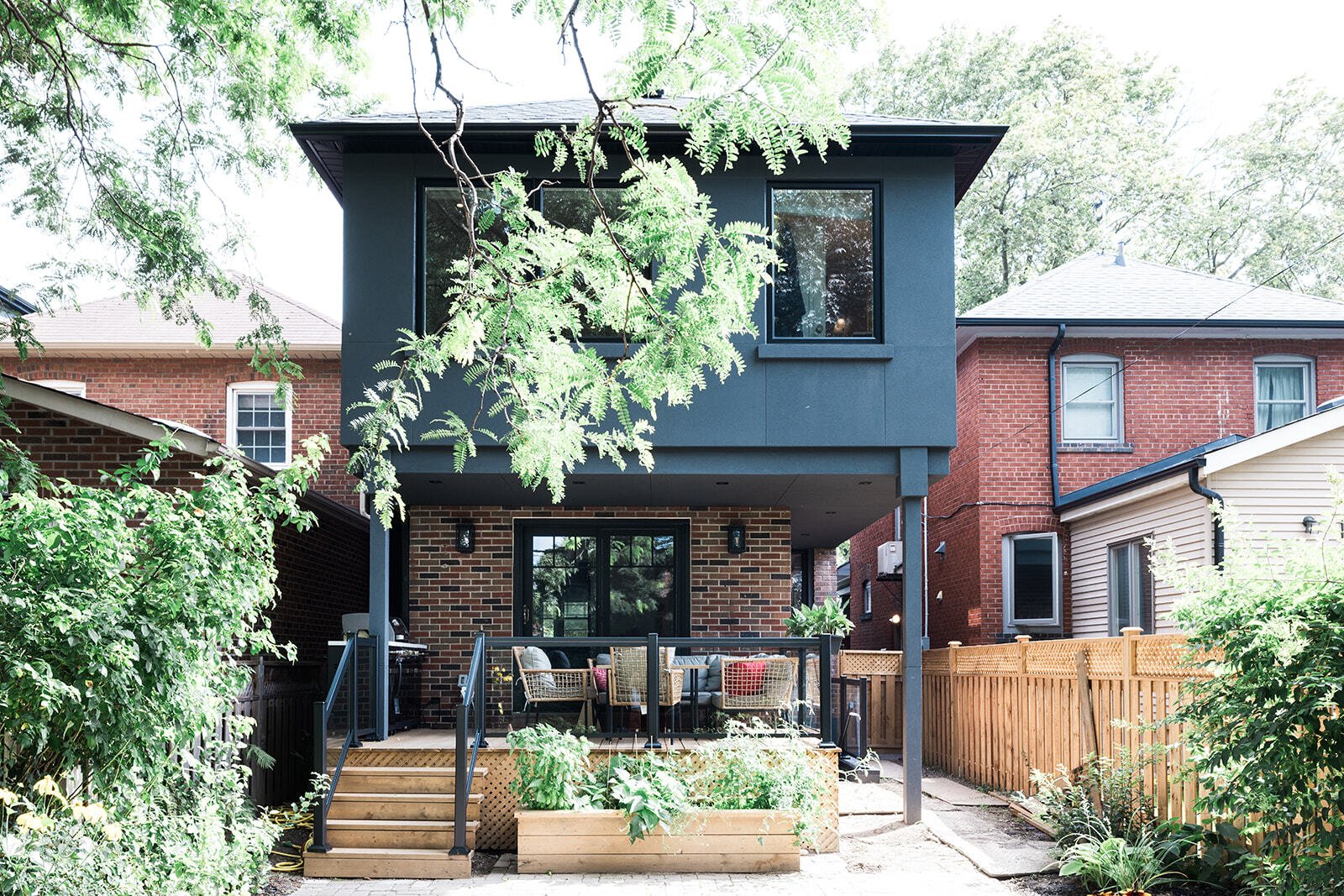How Long Does A Renovation Take In Toronto?
From the initial scope of work and design approvals to material selection and coordination between contractors, there are many factors that can impact the timeline of a renovation. In today's world, we are still feeling some of the repercussions of the impact COVID-19 had on material delays and unexpected problems are common during any renovation process. Whether you're tackling a kitchen, bathroom, full floor, or home addition renovation, understanding the typical timelines and key factors affecting them is essential. From moving plumbing and electrical fixtures to selecting custom cabinetry and countertops, each detail can influence the overall timeline. By prioritizing planning and communication, you can minimize delays and ensure a successful renovation project

Understanding Renovation Timelines
The Scope of Work
When it comes to home renovation projects, the scope of work plays a crucial role in determining the timeline of the project. From the initial design and approvals to the selection and procurement of materials, every step in the process can impact how long the renovation will take. Factors such as coordination between contractors, unexpected problems that may arise during the renovation, and the influence of external factors like COVID-19 can all contribute to delays. By understanding the key elements that affect the timeline, homeowners can better plan and communicate with their team to ensure a successful renovation project. Prioritizing these factors can help minimize delays and streamline the overall process, ultimately leading to a more efficient and timely completion of the project.
Design and Approvals
The design and approval process can significantly impact the overall timeline. From conceptualizing the initial design to obtaining permits and approvals, each step plays a crucial role in determining how long the renovation will take. Delays in design revisions, approval processes, and permit acquisition can all add time to the project schedule. It's essential for homeowners to work closely with their design team and contractors to streamline this phase and ensure a smooth transition into the construction phase. By understanding the importance of efficient design and approval processes, homeowners can effectively manage their renovation timeline and achieve a successful project outcome.
Material Selection and Procurement
Material selection and procurement can significantly impact the overall project schedule. Coordinating between contractors and subtrades, obtaining permits and inspections, and dealing with unexpected problems during the renovation process are all factors that can influence the timeline. Whether you're renovating a kitchen, bathroom, full floor, or adding a new room to your home, understanding how material selection and procurement can affect the timeline is essential. From custom cabinetry and countertops to appliance delivery and installation, each detail plays a crucial role in the efficient completion of the project. By prioritizing effective communication and planning, homeowners can minimize delays and ensure a successful renovation project.
Coordination Between Contractors and Subtrades
Effective coordination between contractors and subtrades is vital in ensuring a smooth and timely home renovation project. By facilitating clear communication channels and establishing a cohesive workflow, potential bottlenecks can be minimized, and tasks can be completed efficiently. Collaborating closely with subtrades, such as plumbers, electricians, and carpenters, ensures that each aspect of the renovation is seamlessly integrated, reducing the risk of delays. Moreover, by fostering a collaborative environment and addressing any issues promptly, contractors can work together harmoniously towards achieving the desired outcome. Ultimately, a well-coordinated team can significantly impact the overall timeline of a renovation project, leading to a successful and timely completion.
Impact of COVID-19 on Material Delays
During the COVID-19 pandemic, the renovation industry experienced significant delays in material availability. This was largely due to disruptions in supply chains and manufacturing processes caused by the global health crisis. As a result, many homeowners faced challenges in obtaining the materials needed for their renovation projects. Delays occurred when certain items were backordered, leading to extended wait times for delivery. Additionally, issues with the quality of materials received further exacerbated the situation, requiring additional time for replacements or adjustments to be made. These unexpected hurdles underscored the importance of flexibility and contingency planning in navigating the uncertainties brought about by the pandemic.
Permits and Inspections
Permits are a crucial aspect of any renovation project, as they ensure that the work being done complies with local building codes and regulations. The time it takes to obtain permits can vary depending on the scope of the project and the specific requirements of the local governing body. Factors such as the complexity of the renovation, the need for structural changes, and the involvement of multiple trades can all impact the permit approval timeline. It is important for homeowners to factor in the potential delays associated with permits when planning their renovation project timeline. By being proactive and ensuring all necessary permits are obtained in a timely manner, homeowners can help avoid unexpected delays and keep their project on track for successful completion
Unexpected Problems During Renovation
Unexpected issues arising during renovations can significantly impact project timelines. Whether it involves uncovering hidden structural problems, encountering unforeseen plumbing or electrical complications, or facing delays in material delivery, these challenges can disrupt the renovation process. Additionally, external factors such as weather-related setbacks or delays in client decision-making can also influence project timelines. It's crucial for homeowners to maintain close communication with their contractors to promptly address and resolve these unexpected issues, minimizing disruptions and keeping the project on schedule. By prioritizing effective communication and proactive problem-solving, homeowners can successfully navigate through unexpected challenges and ensure a timely and successful completion of their renovation project.
Thanks to our Golden Process however, we have been able to understand the most common problems and surprises that arise during a renovation project and the reason why they happen, and we have created a proprietary solution that helps mitigate those problems before we even begin swinging any hammers. It is thanks to this very system that we are able to provide our clients with Peace of Mind once their projects starts.
Kitchen Renovations
Choosing the type of kitchen renovation can significantly impact the timeline of a home renovation project. Whether opting for a simple refresh, a mid-range renovation, or an upscale upgrade, each option comes with its own timeline considerations. Understanding these variations is key for homeowners to effectively plan and oversee their project with success. Overall, an average kitchen renovation should take anywhere between 3 to 5 months from start to finish.
Important considerations
Several factors can influence the timeline of a renovation project. One significant factor is the relocation of plumbing and electrical fixtures. This process can take time due to the need for precise planning and coordination to ensure proper installation. Additionally, the selection and installation of custom cabinetry and countertops can impact the timeline, as these elements often require meticulous measurements and customization. Furthermore, appliance delivery and installation also play a crucial role in the project timeline, as delays in delivery or installation can stall progress. Overall, these factors highlight the importance of careful planning and coordination to ensure a smooth and timely renovation process.

Bathroom Renovations
The timing of a home renovation project can be significantly impacted by the type of bathroom renovation chosen, whether it's a simple refresh, a mid-range renovation, or an upscale upgrade. Each option has its own unique timeline considerations. For a bathroom refresh, involving minor updates like changing fixtures or repainting, the timeline may be relatively short. Conversely, a mid-range renovation, which includes more extensive changes like retiling or installing a new vanity, may take longer to complete. An upscale renovation, with luxury finishes and custom features, typically requires the most time due to the complexity of the work involved. Understanding these variations in bathroom remodeling options is essential for homeowners to plan effectively and ensure a successful and timely completion of their renovation project. By selecting the right type of bathroom remodel and coordinating with contractors and designers accordingly, homeowners can navigate the renovation process smoothly and achieve their desired results within a reasonable timeframe. Overall, an average bathroom renovation should take anywhere between 2 to 4 months from start to finish.
Important considerations
Various factors can impact the timeline of a renovation project, such as relocating plumbing fixtures, selecting and installing tiles, and custom shower or bathtub installations. Moving plumbing fixtures involves intricate work and may require extra time for planning and execution. Likewise, the process of choosing tiles and installing them can vary based on design complexity and material availability. Additionally, custom shower or bathtub installations demand precise measurements and specialized fittings, potentially extending the project duration. Taking these considerations into account is crucial for homeowners to effectively plan the timeline of their renovation project and ensure a seamless and efficient process from beginning to end.

Full Floor Renovations
Renovating a single room versus multiple rooms can significantly impact the timeline of a home renovation project. When tackling a full floor renovation, the complexity and scale of the work increase exponentially with each additional space. Structural changes, such as wall removal or reconfiguring room layouts, can pose challenges that require meticulous planning and execution. These tasks not only add to the timeline but also demand careful coordination between contractors and subtrades to ensure a seamless transition from one area to the next. By considering these aspects and potential hurdles, homeowners can proactively anticipate delays and effectively manage the timeline of their renovation project. Whether it's updating a single room or transforming an entire floor, thorough planning and clear communication are key to achieving a successful and timely completion. Overall, an average full floor renovation should take anywhere between 3 to 5 months from start to finish.
Important considerations
It is essential to coordinate multiple trades efficiently, handle flooring installation meticulously, and manage electrical and HVAC upgrades effectively to maintain a smooth timeline for home renovation projects. By strategically planning and executing these tasks, homeowners can reduce delays and achieve timely completion while maintaining high quality standards.

Home Additions
Considering factors such as coordinating multiple trades, managing flooring installation, and overseeing electrical and HVAC upgrades is essential when discussing the typical timeline for home renovation projects, especially when adding a room or building a new floor. Each of these elements plays a crucial role in the construction process and can have a significant impact on the overall duration of the project. By proactively addressing these factors, homeowners can effectively manage their renovation timeline and achieve successful outcomes in a timely manner. Securing permits is a crucial step to keep in mind, especially for home additions that typically require one. This process alone can extend the project timeline by 3 to 6 months, emphasizing the importance of obtaining the necessary permits in a timely manner. Overall, an average addition project should take anywhere between 6 to 12 months from start to finish.
Important considerations
When it comes to foundation work, it's crucial to take into account factors such as structural engineering, approvals, and integration with existing structures. These elements are essential for ensuring the stability and safety of the entire project. Neglecting them could result in costly errors and jeopardize the success of the renovation.
Conclusion
To conclude, most renovations are a matter of months. Wether its 2 to 4 months for a bathroom renovation, 3 to 5 months for a kitchen renovation or a full floor renovation, or 6 to 12 months for a home addition project, a renovation is no short feat. Clear communication, proactive problem-solving, and strategic coordination are key components in navigating through potential delays and ensuring a timely completion of your renovation project, and having the right team by your side definitely plays a big role in that.
At Golden Bee Homes, our team is not only well-versed in these critical factors but also dedicated to providing expertise in both design and construction to support homeowners every step of the way. You can trust our professional team to not only bring your vision to life seamlessly but also to handle any unforeseen obstacles with efficiency and skill. Let us guide you through the renovation process and turn your dream project into a reality that exceeds your expectations.




